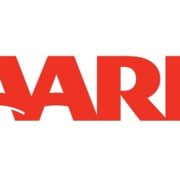What Are The Advantages of a 401(k) Rollover? – Independent Press – 07/06/11
The Independent Press
Money Matters – Skloff Financial Group Question of the Month – July 6, 2011
What Are The Advantages of a 401(k) Rollover?
By Aaron Skloff, AIF, CFA, MBA
Q: I recently left my employer and am considering rolling over my 401(k) account to my Individual Retirement Account (IRA). What are the advantages of such a move?
A: The Problem – Not Understanding the Advantages of Rolling Over Your 401(k) Account to an IRA
Withdrawing Your Assets. Under most circumstances, the IRS will treat assets you withdrawal from your 401(k) as income and tax it at your income tax rate. In addition to income taxes, the IRS will also assess you a 10% penalty if you are not at least 55 years old when you leave your company. The combination of income taxes and penalties could cut your assets almost in half.
Leaving Assets in Your 401(k) Account. Many 401(k) plans offer only 10-20 investment choices, with many of those choices limited to the 401(k) vendor’s proprietary target date funds. Many 401(k) plans prohibit you from moving your assets from one investment to another and then back to the original investment within a set number of days. Even if making those changes would be prudent and in your best financial interest, the plan can still prohibit such moves. Remember, we are talking about your hard earned savings.
The Solution – Understanding the Advantages of Rolling Over Your 401(k) Account to an IRA
When you rollover your 401(k) assets to your IRA you avoid IRS income taxes and penalties. A 401(k) rollover is primarily accomplished through one of two scenarios, a rollover upon separation of service or an in service withdrawal.
401(k) Rollover upon Separation of Service
You can rollover your 401(k) assets to an IRA upon separation of service from your employer. If your former employer issues you a check directly, the withdrawal will generally be subject to 20% mandatory federal income tax withholding. This is in addition to any income taxes and penalties you may owe if the assets are not deposited into a qualified tax shelter (e.g.: IRA). If you execute the transaction as a trustee-to-trustee rollover you will avoid withholding, taxes and penalties.
In-Service Withdrawal while You are Still Employed
Many 401(k) plans allow you to rollover your 401(k) assets into your IRA while you are still employed with that same employer.
Investment Choices in Your IRA. Many investors are disappointed by both the risk profile and the performance of their 401(k) portfolios. Having an inappropriate portfolio risk profile is oftentimes attributed to a lack of investment vehicles required to design a proper asset allocation, which is the primary factor driving disappointing performance.
Many 401(k) plans lack important fund choices, such as: inflation protected bonds, international developed market bonds, emerging market bonds, high yield bonds, convertible bonds, mid-cap stocks and emerging market stocks. Although a limited number of 401(k) plans offer a smattering of these choices, investors are forced to pick the one or two funds the plan offers for that type of investment objective – even if those funds are mediocre. Compounding this problem, many plans have trading restrictions on how you can mange your own 401(k) account.
Once you rollover your assets to an IRA you have access to thousands of investment choices without trading restrictions. If you are not happy with the high yield bond funds you selected in your IRA you can change them to other high yield bond funds the very next day. Remember, we are talking about your hard earned savings.
After rolling over your 401(k) to an IRA consider having your Financial Advisor manage your account. Verify your Financial Advisor is an Investment Adviser Representative registered with a privately owned Registered Investment Advisory firm. Only a privately owned Registered Investment Advisory firm is legally obligated to accept fiduciary duty and place your interests before shareholders and any other party – without conflicts.
Action Steps – Rollover Your 401(k) Account to Your IRA
Rollover your 401(k) account to your IRA and gain the freedom to select investments critical to building a well designed portfolio for your risk profile and eliminate trading restrictions detrimental to portfolio performance. Work closely with your Financial Advisor throughout and after the rollover process to avoid unnecessary taxes and optimization of portfolio risk and return.
Aaron Skloff, Accredited Investment Fiduciary (AIF), Chartered Financial Analyst (CFA), Master of Business Administration (MBA) is CEO of Skloff Financial Group, a Registered Investment Advisory firm based in Berkeley Heights. He can be contacted at www.skloff.com or 908-464-3060.
Click Here for Your Long Term Care Insurance Quotes












